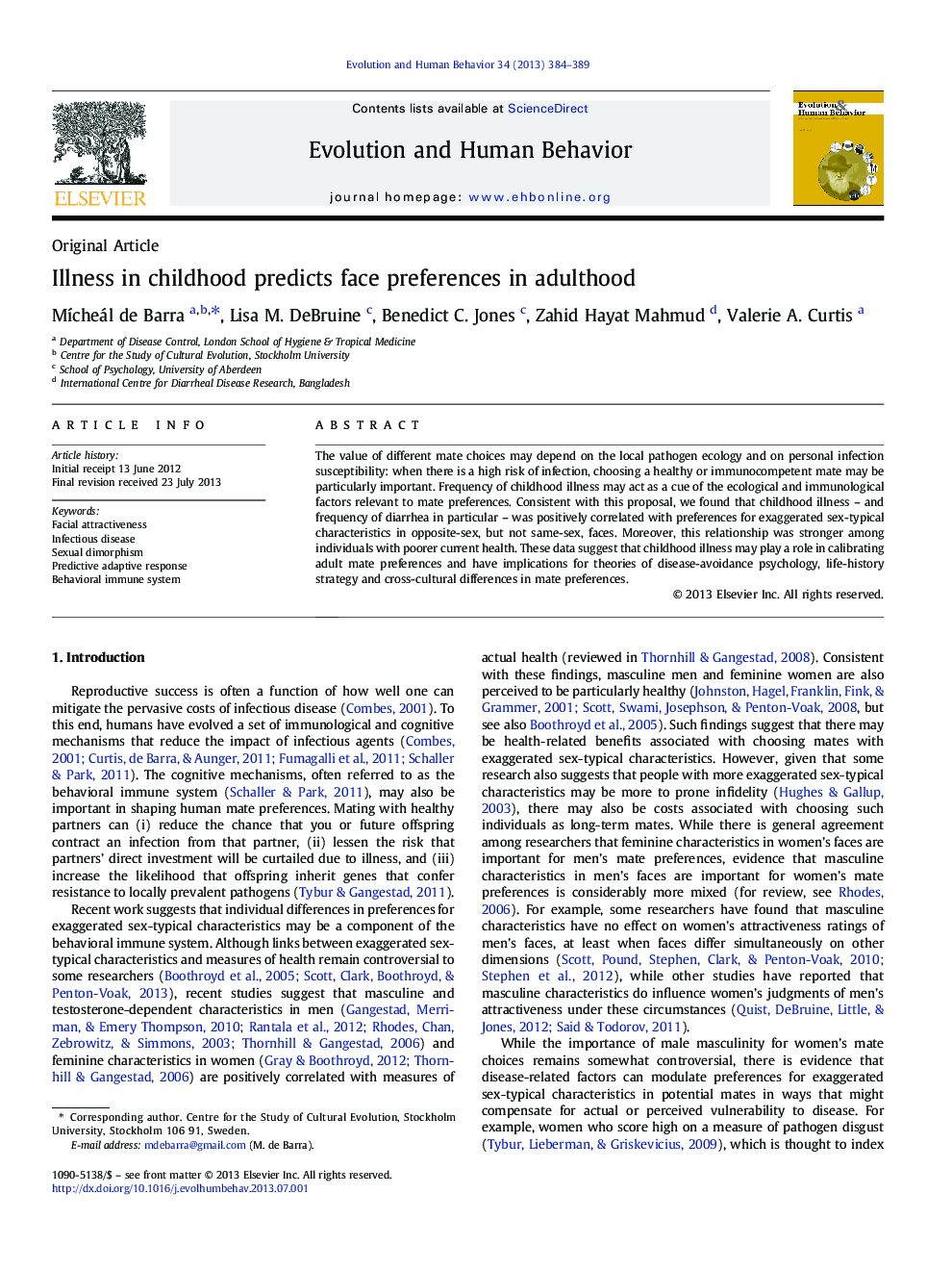| Article ID | Journal | Published Year | Pages | File Type |
|---|---|---|---|---|
| 943152 | Evolution and Human Behavior | 2013 | 6 Pages |
The value of different mate choices may depend on the local pathogen ecology and on personal infection susceptibility: when there is a high risk of infection, choosing a healthy or immunocompetent mate may be particularly important. Frequency of childhood illness may act as a cue of the ecological and immunological factors relevant to mate preferences. Consistent with this proposal, we found that childhood illness – and frequency of diarrhea in particular – was positively correlated with preferences for exaggerated sex-typical characteristics in opposite-sex, but not same-sex, faces. Moreover, this relationship was stronger among individuals with poorer current health. These data suggest that childhood illness may play a role in calibrating adult mate preferences and have implications for theories of disease-avoidance psychology, life-history strategy and cross-cultural differences in mate preferences.
